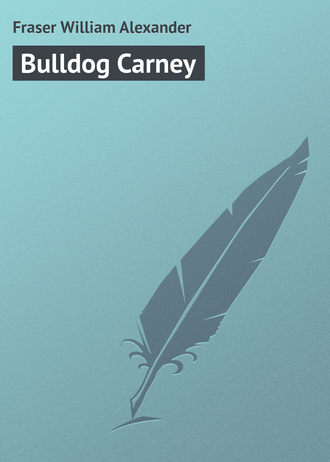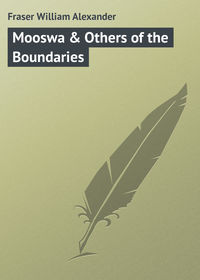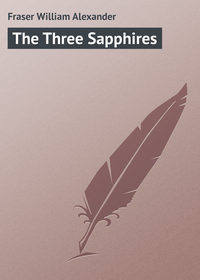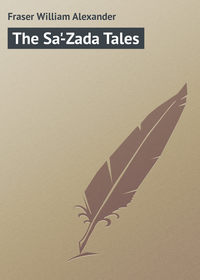 полная версия
полная версияBulldog Carney
As he rode, the trail wound along the flat bank of a little lake that was like an oval torquoise set in platinum and dull gold. Beyond it skirted the lake's feeder, a rippling stream that threw cascades of pearl tints and sapphire as it splashed over and against the stubborn rocks. From beyond, on the far side, floated down from green fir-clad slopes the haunting melody of a French-Canadian song. It was like riding into a valley of peace; and just over a jutting point was the droning tom-toms. As Carney rounded the bend in the trail he could see the smoke-stained tepees of the Stonies.
At that instant the valley was filled with the vocal turmoil of yelping, snarling dogs – the pack-dogs of the Indians.
At first Carney thought that he was the incentive to this demonstration; but a quick searching look discovered a khaki-clad figure on a bay police horse, taking a ford of the shallow stream. It was Sergeant Jerry Platt, all alone, save for a half-breed scout that trailed behind.
Pandemonium broke loose in the Indian encampment. Half-naked bucks swarmed in and out among the tepees like rabbits in a muskeg; some of them, still groggy, pitched headlong over a root, or a stone. Many of them raced for their hobbled ponies, and clambered to their backs. Two or three had rushed from their tepees, Winchester in hand, and when they saw the policeman banged at the unoffending sky in the way of bravado.
Carney shook up his mount, and at a smart canter reached the Sergeant just as his horse came up to the level of the trail, fifty yards short of the camp.
Platt's shoulder had been roughly bandaged by the guide, and his left arm was bound across his chest in the way of a sling. The Sergeant's face, that yesterday had been the genial merry face of Jerry, was drawn and haggard; grim determination had buried the boyishness that many had said would never leave him. His blue eyes warmed out of their cold, tired fixity, and his voice essayed some of the old-time recklessness, as he called: "Hello, Bulldog. What in the name of lost mavericks are you doing here – collecting?"
"Came to give you a hand, Jerry."
"A hand, Bulldog?"
"That's the palaver, Jerry. Somebody ran me in the news of this" – he swept an arm toward the tepees – "and I've ridden all night to help bust this hellery. Heard on the trail you'd got pinked."
"Not much – just through the flesh. A couple of drunken lumberjacks potted me from cover. I've been over at the Company's shacks, but I'm pretty sure they've taken cover with the Indians. I'll get them if they're here. But I've got to herd these bronco-headed bucks back to the reserve."
"They'll put up an argument, Sergeant."
"I expect it; but it's got to be done. They'll go back, or Corporal McBane will get a promotion – he's next in line to Jerry Platt."
"Good stuff, Jerry, I'll – "
"Pss-s-ing!"
Bulldog's statement of what he would do was cut short by the whining moan of a bullet cutting the air above their heads. A little cloud of white smoke was spiraling up from the door of a teepee.
"That's bluff," Jerry grunted.
"We've got to move in, Jerry – if we hesitate, after that, they'll buzz like flies. If you start kicking an Indian off the lot keep him moving. I'm under your command; I've sworn myself in, a special; but I know Standing Bear well, and if you'll allow it, I'll make a pow-wow. But I'm in it to the finish, boy."
"Thanks, Bulldog" – they were moving along at a steady walk of the horses toward the tepees – "but you know our way – you've got to stand a lot of dirt; if you don't, Bulldog, and start anything, you'll make me wish you hadn't come. It's better to get wiped out than be known as having lost our heads. D'you get it?"
"I'm on, Jerry."
Carney knew Standing Bear's tepee; it was larger than the others; on its moose-skin cover was painted his caste mark, something meant to represent a hugetoothed grizzly.
But everything animate in the camp was now focused on their advent. The old men of wisdom, the half-naked bucks, squaws, dogs, ponies – it was a shifting, interminably twisting kaleidoscope of gaudy, draggled, vociferous creatures.
A little dry laugh issued from Jerry's lips, and he grunted: "Some circus, Bulldog. Keep an eye skinned that those two skulking Frenchmen don't slip from a tepee."
Standing Bear stood in front of his tepee. He was a big fine-looking Indian. Over his strong Sioux-like features hovered a half-drunken gravity. In one hand he held an eagle's wing, token of chieftainship, and the other hand rested suggestively upon the butt of a.45 revolver.
Carney knew enough Stoney to make himself understood, for he had hunted much with the tribe.
"Ho, Chief of the mighty hunters," he greeted.
"Why does the Redcoat come?" and Standing Bear indicated the Sergeant with a sweep of the eagle wing.
"We come as friends to Chief Standing Bear," Carney answered.
"Huh! the talk is good. The trail is open: now you may pass."
"Not so, Chief," Carney answered softly. "Harm has been done. Two white men, with evil in their hearts against the police of the Great White Mother, whose children the Stonies are, have wounded one of her Redcoat soldiers; and also the White Mother has sent a message by her Redcoat that Standing Bear is to take his braves back to the reserve."
At this the bucks, who had been listening impatiently, broke into a clamor of defiance; the high-pitched battle-cry of "hi-yi, yi-yi, yi-hi!" rose from fifty throats. The mounted braves swirled their ponies, driving them with quirt and heel in a mad pony war-dance. Half-a-dozen times the lean racing cayuses bumped into the mounts of the two white men.
Running Antelope, a Stoney whose always evil face had been made horrible by the sweep of a bear's claws, raced his pony, chest on, against the buckskin, thrust his ugly visage almost into Carney's face, and spat.
Bulldog wiped it off with the barrel of his gun, then dropped the gun back into its holster, saying quietly: "Some day, Running Antelope, I'll cover that stain with your blood."
The Sergeant sat as stolid as a bronze statue. The squaws stood in groups, either side the Chief's tepee, and hurled foul epithets at the two white men. Little copper-skinned imps threw handfuls of sand, and gravel, and bits of turf.
The dogs howled and snapped as they sulked amongst their red masters.
"We will not go back to the reserve, Bulldog," the Chief said with solemn dignity, and held the eagle wing above his head; "it is the time of our hunt, and a new treaty has been made that we go to the hunt when the payment is made. Of the two pale faces that have done evil I know not."
"They are here in the tepees," Bulldog declared. "The tepees are the homes of my tribe, and what is there is there. Go back while the trail is open, Bulldog, you and the Redcoat; my braves may do harm if you remain."
"Chief, we are blood brothers – was it not so spoken?"
"Standing Bear has said that it is so, Bulldog."
"And Standing Bear said that when his white brother asked a gift Standing Bear would hear the words of his brother."
"Standing Bear said that, Bulldog."
"Then, Chief, Bulldog asks the favor, not for himself, but for the good of Standing Bear and his Braves."
"What asks the Bulldog of Standing Bear?"
"That he give into the hand of the White Mother's Redcoat the two moneas, the Frenchmen; and that he strike the tepees and command the squaws to load them on the travois, and lead the braves back to the reserve."
Running Antelope pushed himself between Carney and the Chief, and in rapid, fierce language denounced this request to Standing Bear.
A ringing whoop of approval from the bucks greeted Antelope's harrangue.
"My braves will not go back to the reserve, Bulldog," the Chief declared.
"Is Standing Bear Chief of the Stonies?" Carney asked; "or is he an old outcast buffalo bull – and does the herd follow Running Antelope?"
The Chief's face twisted with the shock of this thrust, and Running Antelope scowled and flashed a hunting knife from his belt.
"If Standing Bear is Chief of the Stonies, the White Mother's Redcoat asks him to deliver the two evil moneas " Carney added.
Standing Bear seemed to waver; his yellow-streaked black-pointed eyes swept back and forth from the faces of the white men to the faces of the braves.
In a few rapid words Carney explained to Sergeant Platt the situation, saying: "Now is the test, Jerry. We've got to act. I've a hunch the two men you want are in that old blackguard's tepee. Shall I carry out something I mean to do?"
"Don't strike an Indian, Bulldog; don't wound one: anything else goes. If they start shooting, go to it – then we'll fight to the finish."
The Sergeant pulled out his watch, saying: "Give them five minutes to strike the tepees, that may cow them. We've got to keep going."
Standing Bear saw the watch, and asked: "What medicine does the Redcoat make?"
Carney explained that the Sergeant gave him five minutes to strike his tepee as a sign to the others.
"And if Standing Bear says that talk is not good talk, that a Chief of the Stonies is not a dog to be driven from his hunting, what will the Redcoat do?" the Chief asked haughtily.
But Carney simply answered: "Bulldog is the friend of Standing Bear, his blood brother, but at the end of five minutes Bulldog and the White Mother's soldier will lead the Stonies back to the reserve." A quiet followed this; the dreadful heaviness of a sudden stilling of the tumult, for the Chief, raising his eagle wing, had commanded silence.
"Standing Bear will wait to see the medicine making of the Redcoat," he said to Carney.
One minute, two minutes, three minutes, four minutes; the two men sat their horses facing the sullen redskins. A thrilling exhilaration was tingling the nerves of Carney; a test such as this lifted him. And Jerry, as brave as Bulldog, sat throned on his duty, waiting, patient – but it must be.
"The five minutes are up," he said, quietly. Carney seemed toying with his lariat idly as he answered: "Put your watch back in your pocket, Jerry, and command, in the Queen's name, Standing Bear to strike his tepee. The authority game, old boy. I'll interpret, and if he doesn't obey I'm going to pull his shack down. Does that go?"
"It does, and the Lord be with us."
Jerry dropped the watch dramatically into his pocket, raised his voice in solemn declamation, and Carney interpreted the command.
The Chief seemed to waver; his eyes were shifty, like the eyes of a wolf that hesitates between a charge and a skulk-away.
"Speak," Carney commanded: "tell your braves to strike their tepees."
"Go back on the trail, Bulldog."
Standing Bear's words were cut short by the zipp of a rope; from Carney's right hand the lariat floated up like the loosening coils of a snake; the noose settled down over the key-pole, and at a pull of the rein the little buckskin raced backward, and the tepee collapsed to earth like a pricked balloon.
This extraordinary, unlooked-for event had the effect of a sudden vivid shaft of lightning from out a troubled sky. Half paralyzed the Indians stood in gasping suspense, and into the Chief's clever brain flashed the knowledge that all his bluff had failed, that he must yield or take the awful consequence of thrusting his little tribe into a war with the great nation of the palefaces; he must yield or kill, and to kill a Redcoat on duty, or even Bulldog, a paleface who had not struck a tribesman, meant the dreaded punishment of hanging.
The god of chance took the matter out of his hands.
From the entangling folds of the skin tepee two swarthy, flannel-shirted white men wriggled like badgers escaping from a hole, and stood up gazing about in bewilderment. One of them had drawn a gun, and in the hand of the other was a vicious knife.
Sergeant Jerry drew a pair of handcuffs from a pocket, and pushed his bay forward to cut off the retreat of the Frenchmen, commanding: "You are under arrest – hands up!"
As he spoke, with an ugly oath the man with the gun fired. The report was echoed by the crack of Carney's gun and the Frenchman's hand dropped to his side, his pistol clattering to earth.
Sergeant Jerry threw the handcuffs to the man with the knife, saying, sharply: "Shackle yourself by the right wrist to the left wrist of your companion."
The man hesitated, sweeping with his vicious eyes the band of cowed Indians.
One look at the gun in Carney's hands and muttering: "Sacre! dem damn Injuns is coward dogs!" he picked up the chained rings and snapped them on his mate's wrists and his own.
Carney turned to Standing Bear, who stood petrified by the rapidity of events.
"Chief," he said, "with these white outcasts the way is different, they are evil; the Indians are children of the White Mother."
The wily old Chief quickly repudiated the two Frenchmen; he could see that the policeman and Bulldog were not to be bluffed.
"If the two moneas have broken the law, take them," he said magnanimously; "but tell the Redcoat that Standing Bear and his tribe will go from here up into the hills for the hunt, for to return to the reserve would bring hunger to the Stonies when the white rain lies on the ground. Ask the Redcoat to say that this is good, that we may go quickly, and the evil be at an end."
Carney conveyed this to Jerry. It was perhaps the better way, he advised, for the breaking up of the hunt, during which they laid in a stock of meat for the winter, and skins and furs, would be distinct hardship.
"You can take the prisoners in, Sergeant," Carney said, "and I'll stay with Standing Bear till they're up in the mountains away from the lumberjacks."
"They must destroy any whisky they have," Jerry declared.
This the Chief agreed to do.
In half an hour the tepees were all down, packed on the poled travois, blankets and bundles were strapped to the backs of the dogs, and in a struggling line the Stonies were heading for the hills.
Toward the east the two Frenchmen, linked together, plodded sullenly over the trail, and behind them rode Sergeant Jerry and his half-breed scout.




